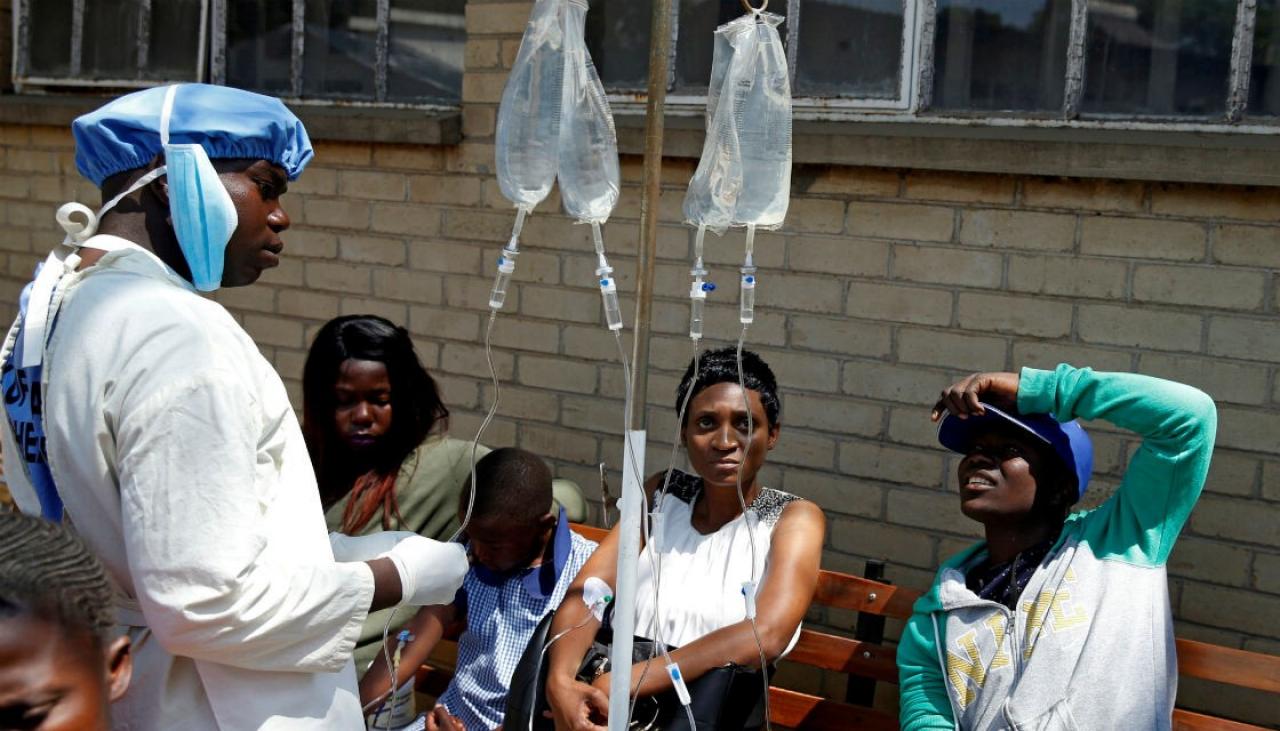
DONATIONS by corporates and developmental partners towards alleviating the cholera epidemic seem to have yielded results, with the number of cases gradually declining since government declared the outbreak a state of emergency early this month.
BY TAFADZWA MUTACHA
Harare town clerk Hosiah Chisango told NewsDay yesterday that the number of cholera deaths and cases had gradually decreased since last week.
“The number of cases recorded as of now is 8 923 suspected, with 79 confirmed cases and the death toll is at 36,” he said.
“There has been a decrease in the number of cholera cases, with most cases reported on the 13th of September. This is because of our supporting donors and developmental partners, who have been supplying water tablets and other necessities.
“The poor sewer infrastructure system in Glen View and Budiriro exposed residents to drinking water that was contaminated through seepage, resulting in the cholera outbreak, with some of the boreholes being decommissioned to curb the prevalence and spreading of the primitive disease.
“What we have done as council is to increase the amount of water that is being pumped to those areas and also increased chlorine for water treatment. Some of the collapsed sewer pipes were replaced and those that had blocked were fixed to prevent spreading of the disease.”
The dilapidated sewer and water infrastructure can no longer sustain sprouting residential areas and the gradual increase in population in Glen View and Budiriro, resulting in perennial sewer pipe bursts.
- Chamisa under fire over US$120K donation
- Mavhunga puts DeMbare into Chibuku quarterfinals
- Pension funds bet on Cabora Bassa oilfields
- Councils defy govt fire tender directive
Keep Reading
Community Working Group on Health executive director Itai Rusike said there was need for long-term investment in water infrastructure.
“The situation on the ground indicates that while infrastructure exists, it is old and malfunctioning and water tariff structures are needed to protect poor households’ access,” he said.
“The cholera epidemic is a marker of the need for investment in this area, particularly in high-density townships.”











